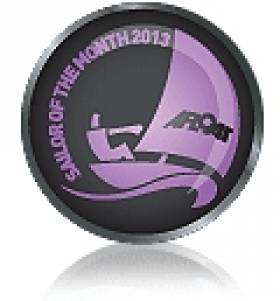Displaying items by tag: Bruno Sroka
France to Ireland Kitesurfer, Bruno Sroka Wins International Sailor of the Month Award
From time to time, we honour sailors from other countries who have achieved outstanding success in Irish waters. But never has our International Award been for anything so extraordinary as French kitesurfer Bruno Sroka's 240 nautical miles voyage on Friday July 19th from L'Aber Wrach in northwest Brittany to Cork Harbour.
In a period of mostly light winds, Sroka was favoured by a beam reach 16 knot nor'easter which he carried with him almost all the way across the mouth of the English Channel, past the Isles of Scilly, and on across the Celtic Sea to a rapturous welcome in to Cork, the feat completed within his aimed time scale of 17 hours, the exact time being 16 hours and 37 minutes, an average of 14.45 knots.
The wind was fading as he neared the Irish coast, but there was just enough bite left in it to bring him to Roche's Point at sunset. A professional kitesurfer, he has already conquered the English Channel, and with his longterm ambition of being the first to get to Ireland from France fulfilled, he is now thinking in terms of the ultimate goal – New York to Brest in 2015.
Kitesurfing Adventurer Plans Crossing From France to Ireland
#Kitesurfing - Bruno Sroka aims to complete an epic solo journey from France to Ireland on his kitesurfing board, powered only by the waves and the wind.
As Surfer Today reports, the French kitesurfer - who already has a crossing of the English channel to his credit - has set himself the challenge next month of surfing from L'Aber-Wrac'h in Brittany to the south coast of Ireland, a distance of some 240 nautical miles.
And it will be just the first of three adventures Sroka has lined up for himself, as he aims to follow this feat with a crossing of the Mediterranean in 2014, and finally the mighty Atlantic Ocean in 2015.
Indeed, his ambitious plans do little to dispel the impression that kitesurfing is a sport for the bravest alone - even too dangerous for the Olympics!
Surfer Today has more on the story HERE.






























































